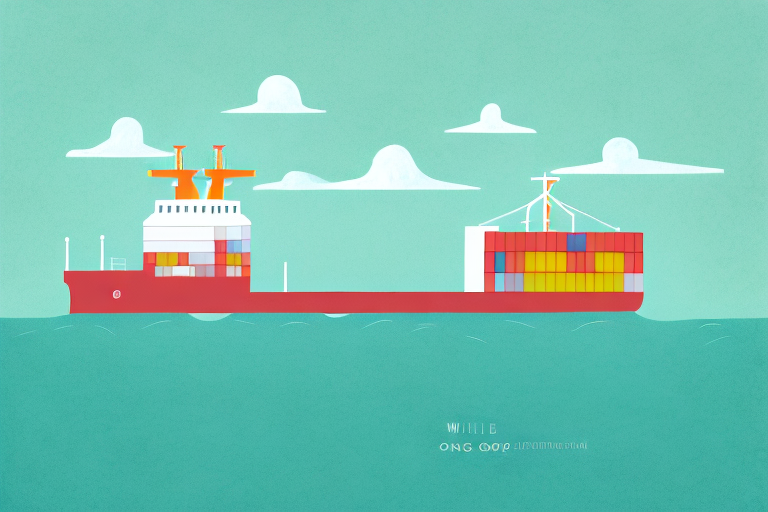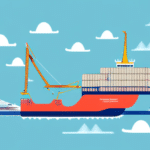What Does 'Carrier' Mean in Shipping?
If you're involved in the shipping industry, you've likely heard the term 'carrier' before. A carrier refers to a company or organization that provides transportation services for goods, moving them from one point to another. This can include anything from transporting raw materials for manufacturing to delivering finished products to retail stores. In this article, we'll explore the different aspects of shipping carriers, from their role in the industry to how they impact shipping costs and transit times.
Types of Shipping Carriers
Understanding the different types of carriers is essential for selecting the right one for your shipping needs. The type of carrier you choose will depend on the specific requirements of your shipment and the nature of the goods being transported. The primary types of carriers include:
- Common Carriers: These carriers offer transportation services to the general public and are available to anyone who needs to ship goods. Examples include FedEx, UPS, and DHL.
- Contract Carriers: These carriers provide transportation services under contract to specific customers or groups of customers. They are often utilized by large companies with regular shipping needs.
- Private Carriers: These carriers own and operate their own fleet of vehicles exclusively for their own shipping purposes. They are typically used by companies that need to transport their own products, such as manufacturers or retailers.
Each type of carrier offers unique advantages and disadvantages. Common carriers provide a wide range of services and are generally more cost-effective for small businesses. However, they may lack the personalized service offered by contract or private carriers. Contract carriers can deliver customized services and are often more reliable for large shipments, but they may come at a higher cost.
Additionally, carriers utilize various modes of transportation, including air, sea, rail, and road. The choice of transportation mode affects the cost, speed, and suitability for different types of goods. For instance, air transportation is faster but more expensive, making it ideal for time-sensitive or high-value shipments, whereas sea transportation is slower but more economical for large or bulk shipments.
The Role of Carriers in the Shipping Industry
Carriers are pivotal in ensuring the efficient and safe transportation of goods within the global supply chain. Their responsibilities include:
- Picking up shipments from the origin point
- Transporting goods to their destination
- Delivering shipments to recipients
- Providing additional services such as packaging, tracking, and insurance
Carriers must comply with various regulations and laws, including customs requirements and safety standards. Proper documentation and labeling are critical to meet these regulations and to facilitate smooth transportation. Moreover, carriers contribute to environmental sustainability by adopting green practices, such as using fuel-efficient vehicles and optimizing routes to reduce carbon emissions.
Impact of Carriers on Shipping Costs and Transit Time
The selection of a carrier significantly influences shipping costs and transit times. Key factors that affect these aspects include:
- Distance: The greater the distance between the origin and destination, the higher the shipping cost and longer the transit time.
- Shipment Weight and Size: Heavier and larger shipments incur higher transportation costs and may take longer to reach their destination.
- Delivery Speed: Expedited shipping options offer faster delivery but come at a higher cost.
Research from the Bureau of Transportation Statistics indicates that air freight costs are approximately 4-6 times higher than sea freight for the same volume, though air shipping can reduce transit time from weeks to days.
Reliability is another crucial factor. Carriers with higher reliability have lower rates of lost or damaged shipments, which can prevent unexpected costs and delays. Reviewing carrier performance data and customer feedback can aid in selecting a dependable carrier.
Additional services, such as insurance and real-time tracking, also impact overall shipping costs. While these services can increase the cost, they provide added security and peace of mind for both shippers and recipients.
Key Factors to Consider When Choosing a Carrier
Selecting the right carrier involves evaluating multiple factors to ensure your shipping needs are met efficiently and cost-effectively. Important considerations include:
- Cost: Compare shipping rates from different carriers to find the most competitive prices without compromising quality.
- Transit Time: Assess the delivery times offered by carriers, especially if your shipments are time-sensitive.
- Reliability: Look for carriers with a strong track record of on-time deliveries and minimal damage rates.
- Customer Service: Effective customer service can resolve issues promptly and provide support when needed.
- Coverage Area: Ensure the carrier can deliver to your desired destinations, including international locations if necessary.
- Specialization: Some carriers specialize in certain types of goods, such as hazardous materials or oversized items, which can be critical depending on your shipment.
Evaluating these factors in conjunction with your specific shipping requirements will help you choose the most suitable carrier for your business needs.
Common vs Private Carriers: Pros and Cons
Common Carriers
- Pros: Access to extensive networks and established routes, often resulting in lower costs due to economies of scale. They also offer a range of services, including packaging and tracking.
- Cons: Less flexibility in delivery schedules and routes. Personalized service is limited, which may not meet specific business needs.
Private Carriers
- Pros: Greater control over delivery schedules and routes. Personalized and dedicated service tailored to specific business requirements.
- Cons: Higher costs associated with owning and maintaining a private fleet. Limited network coverage compared to common carriers.
Choosing between a common and private carrier depends on factors like shipment volume, budget, and the need for specialized services. Businesses with consistent shipping volumes and specific delivery requirements may benefit more from private carriers, while those with varying shipping needs might find common carriers more flexible and cost-effective.
Legal Responsibilities of Carriers
Carriers have several legal obligations to ensure the safe and timely delivery of goods. These responsibilities include:
- Proper packaging and labeling of shipments
- Taking reasonable measures to prevent damage or loss during transit
- Providing insurance coverage for shipments
- Delivering shipments within the agreed-upon time frame
Beyond these, carriers must adhere to all relevant laws and regulations governing the transportation of goods. This encompasses compliance with customs regulations for international shipments, adherence to safety standards, and proper handling of hazardous materials. Non-compliance can lead to severe penalties, including fines and legal action, and can harm the carrier's reputation.
Additionally, carriers must obtain and maintain the necessary permits and licenses required to operate in various regions and countries. This ensures they can legally provide shipping services and handle goods according to local laws, preventing delays and legal complications.
Technology and Future Trends in the Carrier Industry
Advancements in technology have revolutionized the carrier industry, leading to increased efficiency, security, and customer satisfaction. Key technological innovations include:
- Real-Time Tracking: Allows shippers and recipients to monitor the progress of their shipments in real-time, enhancing transparency and enabling proactive issue resolution.
- Automated Systems: Automation in sorting, packaging, and transportation processes reduces human error and speeds up operations.
- Mobile Applications: Mobile apps facilitate easy communication between carriers and customers, providing updates and allowing for quick adjustments to shipping plans.
Looking ahead, the carrier industry faces several emerging trends and challenges:
- Increased Efficiency and Sustainability: There is a growing emphasis on optimizing routes and utilizing eco-friendly technologies to reduce carbon footprints.
- Rise of E-Commerce: The surge in online shopping demands faster and more reliable shipping options to meet consumer expectations.
- Driver Shortage: A significant shortage of qualified drivers poses challenges for carriers, necessitating the adoption of automation and other solutions.
- Changing Regulations: Shifting trade policies and regulations, especially in the international arena, require carriers to stay adaptable and compliant.
Carriers that embrace technological advancements and proactively address these trends and challenges will be better positioned to thrive in the evolving shipping landscape.
Handling Lost or Damaged Shipments
If your shipment is lost or damaged during transit, you'll need to file a claim with the carrier responsible. Most carriers have specific procedures for filing claims, which may include providing documentation such as receipts, invoices, and photos of the damage. It's important to act quickly when filing a claim, as most carriers have strict deadlines for doing so.
Tracking Your Shipment with Your Carrier
Most carriers offer tracking services that allow you to monitor the progress of your shipment in real-time. You can usually access tracking information online using a tracking number or order number provided by the carrier. Tracking information can include the current location of your shipment, expected delivery date, and any delays or issues that may have arisen during transit.
It's important to note that tracking information may not always be updated in real-time and there may be delays in the system. Additionally, some carriers offer more detailed tracking information than others, so it's important to check with your specific carrier to see what information is available. If you have any concerns or questions about your shipment, it's best to contact your carrier directly for assistance.
Negotiating Better Rates with Your Carrier
If you regularly ship large volumes of goods, you may be able to negotiate better rates with your carrier. Some tips for doing so include:
- Shopping around and comparing rates from multiple carriers
- Consolidating multiple shipments to reduce the overall cost of shipping
- Building a strong relationship with your carrier and communicating your needs clearly
- Being aware of any discounts or promotions offered by the carrier
Future Trends and Challenges Facing the Carrier Industry
- Increased Efficiency and Sustainability: There is a growing emphasis on optimizing routes and utilizing eco-friendly technologies to reduce carbon footprints.
- Rise of E-Commerce: The surge in online shopping demands faster and more reliable shipping options to meet consumer expectations.
- Driver Shortage: A significant shortage of qualified drivers poses challenges for carriers, necessitating the adoption of automation and other solutions.
- Changing Regulations: Shifting trade policies and regulations, especially in the international arena, require carriers to stay adaptable and compliant.
As the industry continues to evolve, carriers will need to adapt to meet the changing needs of their customers and the ever-changing landscape of shipping.



















